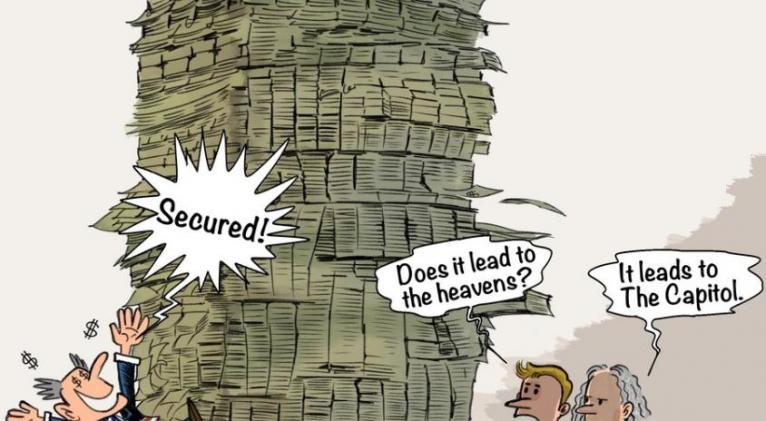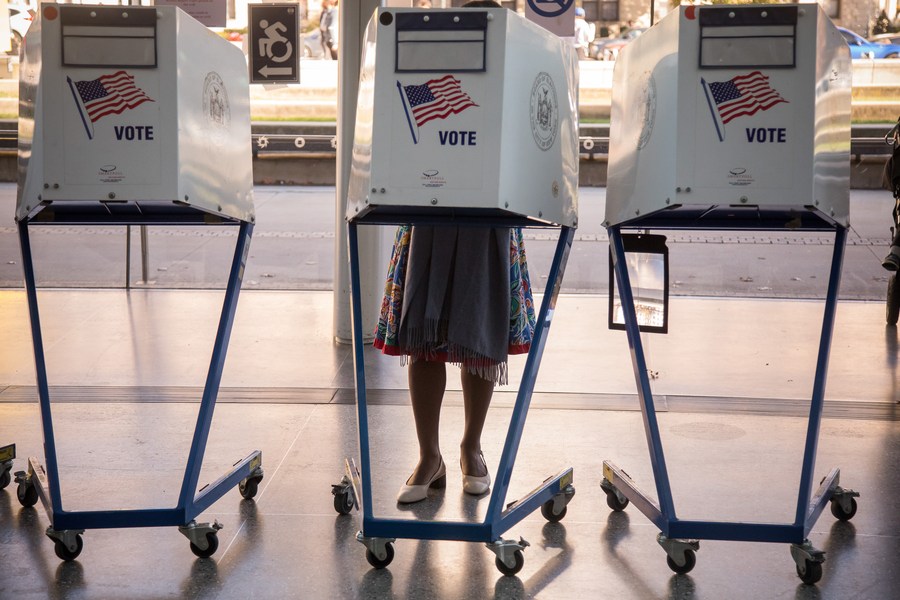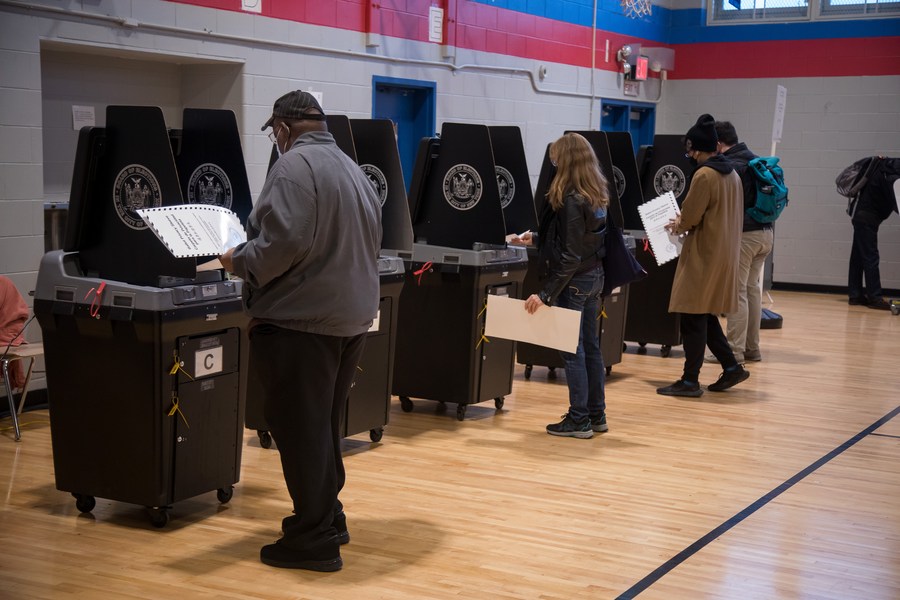World Insights: Money talks -- Voters frustrated by influence of money in U.S. elections
especiales

NEW YORK, Nov. 12 (Xinhua) -- James Gansky, a resident from Nassau County, New York, cast his ballot in the U.S. midterm elections, hoping his vote could help make a change, as the country faces intense political polarization as well as widespread concerns over issues such as a struggling economy, crime and the future of democracy itself.
Yet, he remained doubtful that the voices of ordinary Americans could really be heard by voting in a system complicated by money in politics.
BILLIONAIRES BUYING ELECTIONS
"Everything from the economy, inflation, immigration, crime, everything. Every issue you could possibly think of is on the line here today," Gansky told Xinhua on Tuesday after voting at a polling station in his neighborhood.
"But the biggest issue is that the people that we elect into office are controlled by the people who really put them in the office, big money," said the 55-year-old residential building contractor.
"Until money is taken out of Washington, nothing is ever gonna change," he said.
Fueled by lavish billionaire cash, political spending on the 2022 midterm elections is on track to shatter records.
A tiny group of 465 American billionaires had pumped more than 881 million U.S. dollars into the midterm elections as of Sept. 30, accounting for 7.4 percent of all the money received from any source by candidates, parties and political action committees (PACs) this election cycle, according to a recent report by Americans for Tax Fairness, a tax reform advocacy organization.
The sum was a 44 percent increase in billionaire contributions as compared to the entire 2018 midterm cycle, which totaled 611 million dollars, the previous record.

A woman fills in her ballot at a polling station in New York, the United States, on Nov. 8, 2022. (Photo by Michael Nagle/Xinhua)
Wall Street and investment firm leaders have been prominent in the list of top individual donors, with billionaire cash flowing to both Democrats and Republicans, but much more is going to GOP candidates, revealed the report.
American voters grew concerned over the outsized influence of super-wealthy political donors in U.S. elections, and many argued that money distorts elections to favor special interests, threatening America's democracy.
The Democrats and the Republicans "are all part of the same system," and "have their hands in the cookie jar," said Gansky.
"It is not healthy for candidates across the political spectrum to owe so much to so few contributors," noted an analysis released Wednesday by New York-headquartered nonprofit law and public policy institute the Brennan Center for Justice.
"The U.S. government is not an investment vehicle for the ultra-wealthy," the article continued, noting that "it's a problem we must address, sooner rather than later."
Experts noted that the U.S. campaign finance system unfairly favors a handful of wealthy donors, putting the voices of everyday Americans at a disadvantage, as politicians are more inclined to promote policies that meet the needs of big-money donors in order to gain and keep their financial support.

People vote at a polling station in New York, the United States, on Nov. 8, 2022. (Photo by Michael Nagle/Xinhua)
DARK MONEY AILING DEMOCRACY
U.S. elections have been increasingly expensive especially after the Citizens United v. Federal Elections Commission Supreme Court ruling in 2010.
Citizens United paved the way for unrestricted political spending from corporations and other large donors, and created loopholes in campaign disclosure rules that have made dark money disturbingly common. Dark money refers to money intended to influence election results from undisclosed sources.
Dark money groups aligned with the Republican and Democratic parties' congressional leadership have steered more than 295 million dollars from secret donors into the 2022 federal elections, according to OpenSecrets, a nonprofit organization tracking data on campaign finance and lobbying.
"Of that, about 142 million dollars went to TV and online ads boosting or attacking candidates," disclosed OpenSecrets, citing data provided by ad tracking firm AdImpact. "Over 153 million dollars more was funneled into political contributions to groups like super PACs."
"I think most of the commercial seen on TV is people backing them, secret money backing these candidates," a voter from Long Island, New York who only gave his name as Paul told Xinhua.
"It does influence people who don't know the issues," he said, adding that "it's very hard to control that once dark money is coming in" due to its anonymous sources.
"I'm sure there is dark money. Money buys everything," echoed Michael Croce, a voter from Queens, New York City.
Joel Kotkin, author of "The Coming of Neo-Feudalism: A Warning to the Global Middle Class," said "it's not just about money. It's the fact that we have become such an unequal society."
While there are growing calls from the public to curb the influence of big money in politics and fix America's ailing democracy, some voters were not so optimistic about the prospect.
"I really don't know how to fix that problem because money ... as they say, money is the root to all evil. And here we are, we're looking at the face of evil because it's all driven by money," said Gansky. "I don't see this two-party system working anymore."














Add new comment